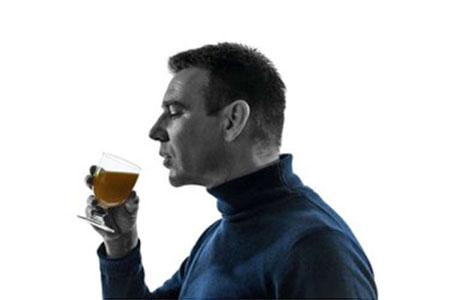You are here
Beer essentials
By Nickunj Malik - Oct 03,2018 - Last updated at Oct 03,2018
I do not know about you, but I found myself glued to the American TV news channels last week. There was high drama being enacted right in front of the world stage and I did not even blink, for fear of missing some of the action. As discussions about Brett Kavanaugh — the American attorney and judge, who is currently a nominee for associate justice of the Supreme Court of the United States, and Christine Blassey Ford, a professor at Palo Alto university, who accused Kavanaugh of sexually assaulting her when she was in high school some 35 years ago — gathered steam, more skeletons came tumbling out of the closet.
During his long testimony before the Senate Judiciary Committee, though Kavanaugh denied committing any sexual misdemeanour or ever blacking out as a result of over-drinking, he mentioned beer 28 to 30 times! As he put it, “I drank beer with my friends. Almost everyone did. Sometimes I had too many beers. Sometimes others did. I liked beer. I still like beer. I don’t know if you do. Do you like beer, Senator, or not? What do you like to drink?”
So, why do so many people, including Kavanaugh, like beer? Considered as the third most popular beverage, after water and tea, it is supposed to be one of the oldest and most widely consumed alcoholic drinks. It contains ethanol, which has short and long-term inebriating effects on the user when consumed. Drinking it in moderation causes increased self-confidence, possible euphoria and decreased anxiety. But excess consumption leads to slurred speech, impaired fine muscle coordination, staggering, dizziness and vomiting.
Before 6000 BCE, beer was made from barley in Sumer and Babylonia. The basic techniques of brewing came to Europe from the Middle East where the monastic orders preserved brewing as a craft. Hops were in use in Germany in the 11th century, and in the 15th century they were introduced into Britain from Holland. In 1420, beer was made in Germany by a bottom-fermentation process, so called because the yeast tended to sink to the bottom of the brewing vessel; before that, the type of yeast used tended to rise to the top of the fermenting product and was allowed to overflow or was manually skimmed.
Oktoberfest, the world’s largest beer festival is held annually in Munich, Bavaria, Germany since 1810 and has more than 6 million people from around the world attending the event every year.
Right! Drinking a can or two of beer is supposed to be a harmless sort of activity that at best, makes one jovial and at worst, gives one a protruding beer belly. Sticking to one or two cans of the draught is the key because over indulgence of this deceptively safe brew, gives rise to belligerence, aggression and hostile behaviour on the part of the drinker.
This was apparent when the interrogation progressed with Kavanaugh during the Senate judiciary examination. At some point, alcohol (particularly, how much Kavanaugh drank) turned out to be the centre of the hearing as his answers about drinking too much became evasive, vague and defensive.
“You know what Brett Kavanaugh should do?” I asked my husband.
He ignored my question and kept watching TV.
“He should forget about the Supreme Court of USA,” I said.
“He must go to Germany instead,” I continued.
“And offer to become a mascot for Oktoberfest,” I suggested.
“With the tagline — I like beer, do you?” my spouse laughed.
Related Articles
Drinking scalding hot tea is associated with an increased risk of oesophageal tumours in people who also smoke and drink alcohol, two habits
Tea drinkers who love a scalding-hot cup of the beverage may want to let it cool down a bit to avoid an increased risk of oesophagus cancer,
Even light drinkers who enjoy a single beer or glass of wine every night may still be more likely to die prematurely than people who drink l
















